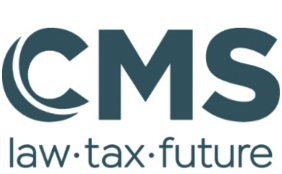On 8 November 2024, the Standing Committee of the National People’s Congress adopted the amended Anti-Money Laundering Law (the “Amended AML Law”). It will take effect on 1 January 2025 and replace the existing Anti-Money Laundering Law of 2006 (the “AML Law 2006”).
Generally, most of the amendments made under the Amended AML Law do not introduce new regulatory requirements but rather incorporate already implemented administrative regulations and rules issued by the relevant authorities. However, the Amended AML Law also includes some important changes which we summarize below.
a) Extending the application of the AML
The first paragraph of Article 2 adds a catch-all clause to extend the scope of anti-money laundering to prevent disguising or concealing activities of the source or nature of proceeds and gains from so-called “other crimes”. This leaves room for the authorities in the future to include gains from other crimes, such as from telecom and online fraud, in the anti-money laundering regulatory regime. The second paragraph of Article 2 also explicitly includes the application of the Amended AML Law to the prevention of terrorism financing activities.
b) Clarifying the scope of anti-money laundering obligors
Pursuant to the AML Law 2006, financial institutions established in the territory of the PRC and specific non-financial institutions that are required by relevant regulations to fulfil the anti-money laundering obligation and are established in the territory of the PRC shall fulfil their anti-money laundering obligation. The Circular Yin Ban Fa (2018) No. 120 provided the scope of “the specific non-financial institutions” under the AML Law 2006.
The Amended AML Law amends this scope as follows:
- Real estate development enterprises or real estate intermediary agencies that provide real estate sales or brokerage services;
- Accounting firms, law firms, and notary offices that accept engagements from clients to handle the purchase and sale of real estate, manage their funds, securities or other assets, manage their bank accounts or securities accounts, raise funds for establishing or operating enterprises, or act as agents in selling or buying operating entities;
- Traders engaged in spot trading of precious metals or gems in excess of a specified amount (to be further stipulated); and
- Other institutions required to perform anti-money laundering obligations as determined by the State Council anti-money laundering authority, i.e. the People’s Bank of China, together with the relevant authorities under the State Council based on their money laundering risk conditions.
The above specific non-financial institutions shall fulfil their own obligations in accordance with the characteristics of their industry, the scale of their operations and their money laundering risk conditions.
c) Introducing beneficial ownership filing system
The Amended AML Law also introduces the establishment of a beneficial ownership filing system. Financial institutions and specific non-financial institutions are required to inquire about and verify the beneficial ownership information of their clients as part of their anti-money laundering obligations. Beneficial owner refers to the natural person who ultimately owns or actually controls the legal person or non-legal person organisation, or who ultimately benefits from the legal person or non-legal person organisation.
This echoes the PRC Administrative Measures for Beneficial Ownership Information (the “BOI Measures”), which were jointly promulgated by the People’s Bank of China and the State Administration of Market Regulation on 29 April 2024 and have entered into effect on 1 November 2024. According to the BOI Measures, entities which had been established before 1 November 2024 shall file beneficial ownership information by 1 November 2025.
d) Establishing the principle of extra-territorial application
The Amended AML Law extends its jurisdiction to any overseas money laundering and terrorist financing activity that takes place outside the PRC but threatens China’s sovereignty and security, infringes on the legitimate rights and interests of its citizens, legal entities and other organisations, or disrupts the financial order in the PRC. Such activities would be held liable under the Amended AML Law.
According to the report of the Financial Action Task Force (FATF), the global watchdog on money laundering and terrorist financing, since the 2019 assessment of the measures to tackle money laundering and terrorist financing, China has taken a number of actions to strengthen its framework. The promulgation and implementation of the Amended AML Law is another step for China to improve and further strengthen its anti-money laundering regime.






